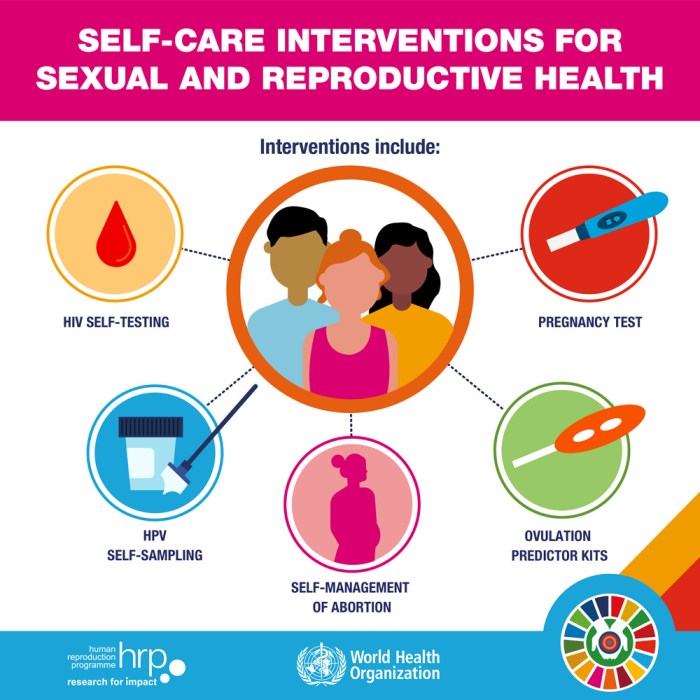
Delving into Reproductive Health and Mental Health, this introduction immerses readers in a unique and compelling narrative, exploring how these two aspects intricately intertwine to impact overall well-being. From the influence of mental health on reproductive health to the role of stress in both areas, this discussion sheds light on a crucial yet often overlooked relationship.
As we unravel the complexities of how mental and reproductive health intersect, we uncover the profound impact each has on the other, shaping the experiences and outcomes of individuals in profound ways.
Reproductive Health and Mental Health

Reproductive health and mental health are closely interconnected, with one often influencing the other. The relationship between these two aspects of health is complex and multidimensional.
Impact of Mental Health on Reproductive Health
- Mental health issues such as depression and anxiety can affect a person’s reproductive health by disrupting their hormonal balance and menstrual cycle.
- Individuals with untreated mental health conditions may have difficulty conceiving or carrying a pregnancy to full term.
- Stress and trauma from past experiences can also impact reproductive health outcomes, leading to complications during pregnancy or childbirth.
Role of Stress in Affecting Reproductive and Mental Health
- Chronic stress can disrupt the body’s hormonal balance, affecting ovulation in women and sperm production in men, thereby impacting fertility.
- High levels of stress can contribute to mental health disorders such as anxiety and depression, further exacerbating the impact on reproductive health.
- Managing stress through therapy, mindfulness practices, and self-care can help improve both mental and reproductive health outcomes.
Contraceptives Birth Control Reproductive Health
Contraceptives play a crucial role in promoting reproductive health by allowing individuals to plan and space pregnancies effectively. There are various types of contraceptives available, each with its own effectiveness and side effects.
Types of Contraceptives
- Birth Control Pills: Oral contraceptives that contain hormones to prevent ovulation.
- Condoms: Barrier method that prevents sperm from reaching the egg.
- IUDs: Intrauterine devices inserted into the uterus to prevent pregnancy.
- Implants: Small rods inserted under the skin that release hormones to prevent pregnancy.
- Depo-Provera: Hormonal injection that prevents ovulation for three months.
Effectiveness and Side Effects
- Birth Control Pills: Highly effective if taken correctly, may have side effects like nausea and weight gain.
- Condoms: Effective in preventing STIs, may reduce sensitivity during intercourse.
- IUDs: Long-acting and reversible, may cause heavier periods or cramping.
- Implants: Effective for up to three years, may cause irregular bleeding.
- Depo-Provera: Highly effective, may cause weight gain and irregular periods.
Importance of Contraceptives
Using contraceptives not only helps in preventing unintended pregnancies but also allows individuals to plan their families according to their desires and circumstances. It promotes reproductive health by reducing maternal and infant mortality rates, improving maternal and child health outcomes, and empowering individuals to make informed choices about their reproductive futures.
Epilogue

In conclusion, the intricate dance between Reproductive Health and Mental Health highlights the need for comprehensive care that addresses both aspects holistically. By recognizing and addressing the interconnectedness of these two domains, we pave the way for improved well-being and a deeper understanding of the human experience.
Question Bank
How does mental health affect reproductive health?
Mental health can impact reproductive health through various mechanisms, such as altering hormone levels and affecting fertility. Seeking professional help is crucial in addressing these issues.
What role does stress play in reproductive and mental health?
Stress can have detrimental effects on both reproductive and mental health, leading to conditions like infertility and anxiety. Adopting stress management techniques is essential for overall well-being.





